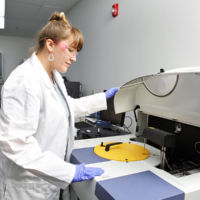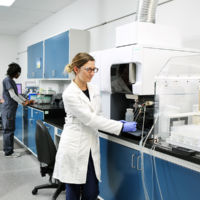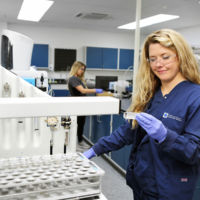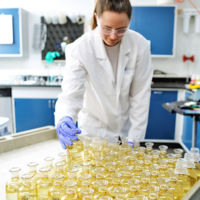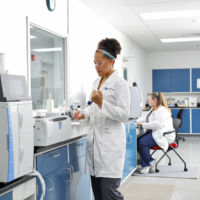Expert Analysis and Timely Results.
Rogers & Callcott Environmental offers the integrated services of an on-site, nationally accredited Environmental Laboratory. This gives our engineers and scientists immediate access to critical data in order to make timely decisions and formulate strategic compliance solutions for our clients. Our Environmental Laboratory also serves its own client base of hundreds of industrial and commercial customers, municipalities and consultants all over the United States.
Please use our search tool to review the extensive analyses offered at R&C in the following categories:
Drinking Water Wastewater Solids Groundwater Stormwater
Testing Results You Can Depend On
Our laboratory is routinely evaluated by state and national environmental accreditation programs via on-site performance testing. When you need data you can depend on, the experienced team at Rogers and Callcott’s environmental laboratory is ready to serve you.
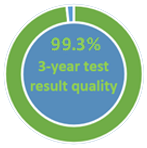 Our results are among the best in the nation: 3,947 analyses conducted from 2016-2019 measured 99.3% Acceptable.
Our results are among the best in the nation: 3,947 analyses conducted from 2016-2019 measured 99.3% Acceptable. Rogers & Callcott Environmental Laboratory Analytical Services
Our 14,000 sq. ft. Environmental Laboratory is designed to provide trace and ultra trace environmental testing for a multitude of programs:
(Click on each category below to read more.)
The Safe Drinking Water Act (SDWA) is the federal law that protects public drinking water supplies throughout the nation. Under the SDWA, EPA sets standards for drinking water quality and with its partners implements various technical and financial programs to ensure drinking water safety.
Rogers & Callcott analyzes drinking water for municipalities, private citizens and state agencies. We’ve been awarded state contracts for the analysis of lead, copper, and disinfection by-products in drinking water. We partner with numerous drinking water facilities to perform their required analyses.
We offer routine drinking water analyses which include volatile organics, trihalomethanes, haloacetic acids, total organic carbon, metals (including lead and copper), inorganic parameters, and bacteria.
The Clean Water Act (CWA) establishes the basic structure for regulating discharges of pollutants into the waters of the United States and regulating quality standards for surface waters.
Under the CWA, EPA has implemented pollution control programs such as setting wastewater standards for industry. EPA has also developed national water quality criteria recommendations for pollutants in surface waters.
The CWA made it unlawful to discharge any pollutant from a point source into navigable waters unless a permit was obtained. EPA's National Pollutant Discharge Elimination System (NPDES) permit program controls discharges.
Rogers & Callcott offers wastewater sampling and analyses for routine compliance monitoring, treatment studies, and permit renewal including total toxic organics, priority pollutants, and OCPSF. We provide certified, pre-cleaned sample containers with required preservatives and chains of custody (coolers and packing materials can also be provided at the client’s request). Pre-printed container labels and chains of custody can be provided for clients that collect their samples. We offer on site composite sampling and sample pick up.
Rogers & Callcott has invested in a state-of-the-art LIMS (Laboratory Information Management System). Permit limits can be entered into the LIMS, allowing the project manager to notify you of a permit violation immediately so you can take corrective action. Client Connect, our online data portal, provides access to data, reports, and EDDs (Electronic Data Deliverables).
Solids
Proper waste management is an essential part of community's public and environmental health. The Resource Conservation and Recovery Act (RCRA), passed in 1976, created the framework for America’s hazardous and non-hazardous waste management programs. Materials regulated by RCRA are known as “solid wastes.” Only materials that meet the definition of solid waste under RCRA can be classified as hazardous wastes, which are subject to additional regulation.
Rogers & Callcott performs analyses on various solids and solids wastes, including:
- Biosolids (Sewage Sludge)
Sewage sludge, when properly treated by wastewater treatment facilities, is nutrient-rich organic material which can be used as fertilizer. - Solid Waste
RCRA requires generators to determine if their waste is hazardous. Generators must document that the waste they produce is properly identified, managed, and treated prior to recycling or disposal. - Soils / Sediments
Soil samples are normally analyzed for nutrients and metals. They are also analyzed when there is possible contamination from a leak or spill.
Our full-service testing laboratory offers sampling and analyses of soil, sediment, sludge, and solid samples. We perform testing for RCRA parameters, Full List TCLP, pH, flashpoint, metals, inorganics, and organics. We also offer fecal coliform testing on bio-solid samples based on the 40 CFR Part 503 regulations.
Please contact the laboratory if you are collecting samples to ensure that you have the proper container and preservative. Rogers & Callcott can provide either sample collection or sample pick-up. We can also ship sampling kits to you with sample containers and instructions.
Groundwater Services
Groundwater remediation is the process that is used to treat polluted groundwater by removing the pollutants or converting them into harmless compounds. Groundwater is water present below the ground surface that saturates the pore space in the subsurface. Globally, 25-40% of the world’s drinking water is drawn from boreholes and dug wells. Groundwater is also used by farmers to irrigate crops and by industries to produce everyday goods. Most groundwater is clean, but groundwater can become contaminated as a result of either human activities or natural conditions.
Rogers & Callcott offers a full slate of groundwater services, including well installation, sampling using both low-flow and fixed-volume purging, field data collection, and laboratory analyses. We maintain an extensive inventory of groundwater sampling equipment, and our groundwater field technicians receive rigorous training and sampling techniques in field parameter measurement. Their technical competence is verified through our Demonstration of Capability Program, and we back up our confidence it in their ability by covering field parameter data with our labratory's certification. Safety, of course, is of paramount importance. Our groundwater technicians must all pass initial 40-hour HAZWOPER training and an annual 8-hour refresher.
For clients who sample groundwater, the laboratory can provide preprinted chains of custody and bottles with preprinted labels containing all of your project information.
Analyses include:
- Target Analyte List (TAL)
- Target Compound List (TLC)
- PCBs
- Volatile and semi-volatile organics
- Metals
- Routine inorganics
- Low Level 1,4-Dioxane
Stormwater runoff occurs when precipitation from rain flows over the ground. Impervious surfaces like driveways, sidewalks, parking lots, and streets prevent stormwater from naturally soaking into the ground.
Stormwater can pick up debris, chemicals, dirt, bacteria, and other pollutants, which can enter a storm drain and flow directly to a lake, stream, river, or coastal water. All facilities must implement control measures to minimize pollutants in stormwater, and routinely sample their stormwater to measure the effectiveness of their mitigation efforts.
Prior to your sampling event, Rogers & Callcott will provide the sample containers with the required preservative, chains of custody, and shipping containers (if needed). You can arrange to have us pick up your samples or you can have one of your employees deliver them to our laboratory, where we have experienced staff ready to receive and analyze your stormwater samples.
Over $2 million has been invested in our modern lab facility and equipment to provide quality laboratory services to the environmental community.
Environmental Field Sampling Services
Rogers & Callcott has an experienced field services team and a fleet of trucks to assist you with all your sampling needs. The field services team is fully trained in the proper techniques to collect, preserve, and transport samples. R&C maintains certifications for field parameters as required by state certification programs. We offer sample pick-up and on-site sample collection in South Carolina, Western North Carolina, and Northeast Georgia.
Our field services include:
24-Hour Composite Sampling
Grab Sampling
Groundwater Monitoring Well Sampling
Drinking Water Systems Sampling
Private Drinking Water Sampling
Soil Sampling
State Certified, Low-Level Mercury (LLHg) Sampling
Grease Trap Sampling
Field Analyses: pH, temperature, conductivity,
chlorine, dissolved oxygen, oxidation-reduction
potential, turbidity, ferrous iron, hydrogen,
sulfate and landfill gasses
Laboratory Consulting Services
To help our clients with their regulatory compliance needs, Rogers & Callcott has experienced professionals who can provide consulting and/or training assistance:
Preparation for Certification Audits
Response after Certification Audits
Laboratory Audits
SOP Reviews & Updates
Laboratory Form/Worksheet Development
Laboratory Procedure Training
Laboratory Quality Control Training
Secure Data Access & Storage 24/7
Clients have ready, online access to all their laboratory reports and historical data via ClientConnect, the web portal to our Laboratory Information Management System (LIMS). With ClientConnect you can:
Access information directly
View real-time results
Check for status updates
Download reports and related documents
Create and export custom EDDs (Electronic Data Deliverables)
View and graph data trends
To sign up for ClientConnect, contact your R&C project manager.
We Serve:
Industry
Water Systems
Environmental Consultants
General Public
Municipalities
Contractors
Other Commercial Laboratories
Regulatory Agencies
Downloads
Forms:
Chain of Custody
Credit Application form
Laboratory Certifications
South Carolina Greenville
South Carolina Columbia
North Carolina Drinking Water
North Carolina Water Quality
Georgia Drinking Water
NELAP – 2009 TNI Standard
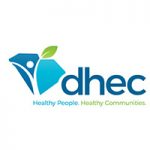
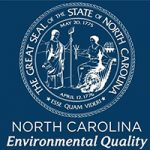
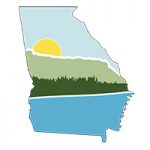
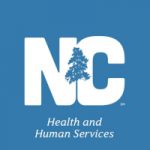
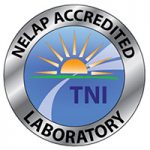
Sample Handling Quick Reference Guide
(click here)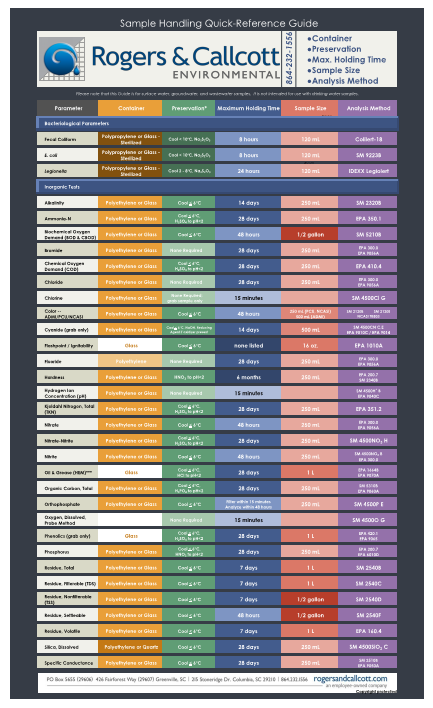
Click below to sign up for our E-Newsletter which will include periodic updates to our Sample Handling Reference Guide:

